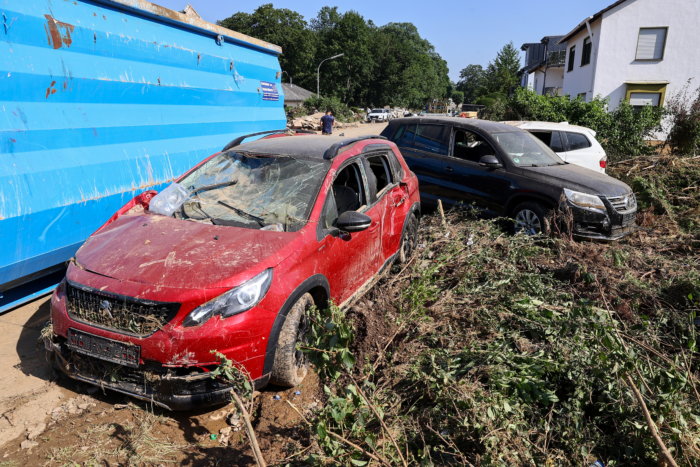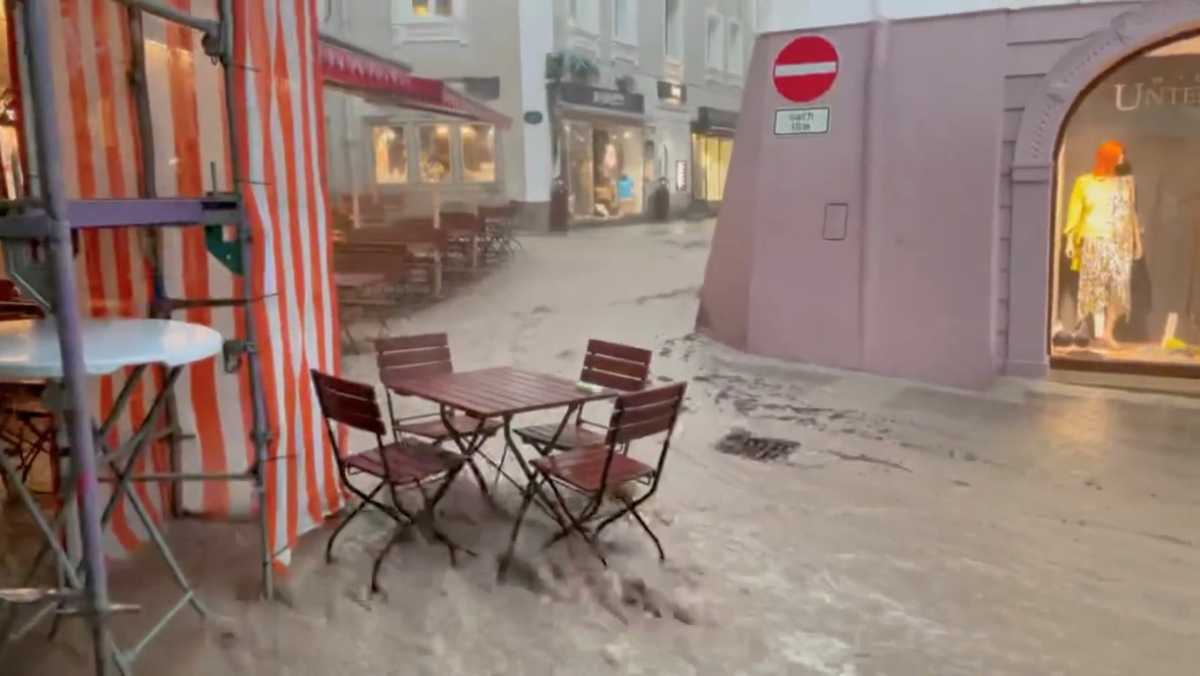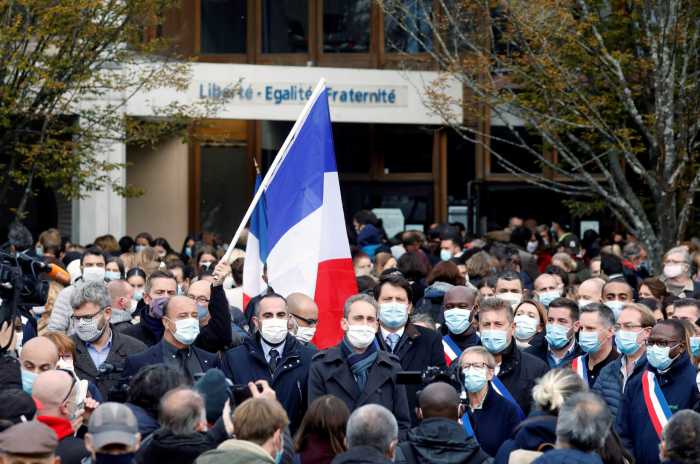By Ralph Brock and Romana Fuessel
BERCHTESGADEN/BISCHOFSWIESEN, Germany – Flash floods hit southern Germany on Sunday, killing at least one person, turning roads into rivers and adding to the flooding devastation that has claimed the lives of more than 180 people across Europe in recent days.
Some vehicles were swept away and swathes of land were buried under thick mud as the Berchtesgadener Land district of Bavaria became the latest region to be hit by record rainfall and floods.
Hundreds of rescue workers were searching for survivors in the district, which borders Austria.
“We were not prepared for this,” said Berchtesgadener Land district administrator Bernhard Kern, adding that the situation had deteriorated “drastically” late on Saturday, leaving little time to for emergency services to act.
Sunday’s death brought Germany’s death toll to 157 in its worst natural disaster in almost six decades, and the European toll to 184.
About 110 people have been killed in the worst-hit Ahrweiler district south of Cologne. More bodies are expected to be found there as the flood waters recede, police say.
The European floods, which began on Wednesday, have mainly hit the German states of Rhineland Palatinate, North Rhine-Westphalia as well as parts of Belgium. Entire communities have been cut off, without power or communications.
In North Rhine-Westphalia at least 46 people have died, while the death toll in Belgium stood at 27.
The German government will be readying more than $354 million in immediate relief and billions of euros to fix collapsed houses, streets and bridges, Finance Minister Olaf Scholz told weekly newspaper Bild am Sonntag.
“There is huge damage and that much is clear: those who lost their businesses, their houses, cannot stem the losses alone.”
There could also be a 10,000 euro short-term payment for businesses affected by the impact of the floods as well as the COVID-19 pandemic, Economy Minister Peter Altmaier told the paper.
POWER OUT
Scientists, which have long said that climate change will lead to heavier downpours, said it would still take several weeks to determining its role in these relentless rainfalls.
In Belgium, which will hold a national day of mourning on Tuesday, water levels were falling on Sunday and the clean-up operation was underway. The military was sent in to the eastern town of Pepinster, where a dozen buildings have collapsed, to search for any further victims.
Tens of thousands of people are without electricity and Belgian authorities said the supply of clean drinking water was also a big concern.

Emergency services officials in the Netherlands said the situation had somewhat stabilized in the southern part of Limburg province, where tens of thousands were evacuated in recent days, although the northern part was still on high alert.
“In the north they are tensely monitoring the dykes and whether they will hold,” Jos Teeuwen of the regional water authority told a press conference on Sunday.
In southern Limburg, authorities are still concerned about the safety of traffic infrastructure such as roads and bridges battered by the high water.
The Netherlands has so far only reported property damage from the flooding and no dead or missing people.
In Hallein, an Austrian town near Salzburg, powerful flood waters tore through the town centre on Saturday evening as the Kothbach river burst its banks, but no injuries were reported.
Many areas of Salzburg province and neighboring provinces remain on alert, with rains set to continue on Sunday. Western Tyrol province reported that water levels in some areas were at highs not seen for more than 30 years.
Parts of Switzerland remained on flood alert, though the threat posed by some of the most at-risk bodies of water like Lake Lucerne and Bern’s Aare river has eased.




























